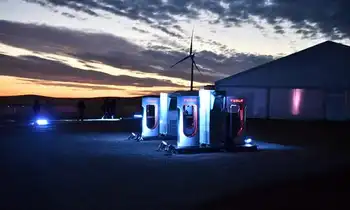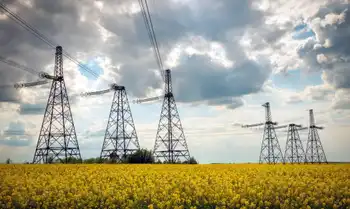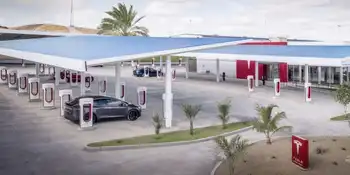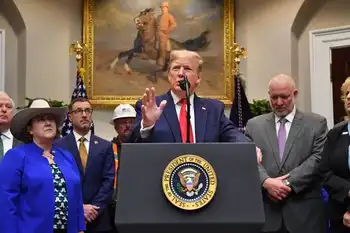Exploring a smarter grid for Illinois
By Electricity Forum
NFPA 70b Training - Electrical Maintenance
Our customized live online or in‑person group training can be delivered to your staff at your location.

- Live Online
- 12 hours Instructor-led
- Group Training Available
Chicago Mayor Richard J. Daley and former U.S. Speaker of the House Representative Dennis Hastert will serve as the honorary co-chairs for the effort. The Smart Grid Initiative is a voluntary group of state and local government, consumer, business, environmental, and utility stakeholders that will work together to examine how consumers can benefit from comprehensive grid modernization in Illinois. This Initiative comes at a critical time for IllinoisÂ’ electric power industry faced with growing peak demand, soaring fossil fuel costs and rising concerns over carbon emissions, all of which threaten to significantly increase electricity costs.
U.S. businesses, public institutions and homes rely on electricity generated by a system completed a half-century ago that costs Americans more than $150 billion a year in power outages. In Illinois, power outages cost jobs and major losses for consumers and businesses. Modernizing the electricity system to incorporate smart grid technology has the potential to substantially reduce the costs of unreliable service.
Initial organizations demonstrating interest in this initiative include consumer groups, environmental groups, business organizations and energy suppliers. A series of stakeholder meetings will be held in the coming months to engage policymakers and other influential leaders in the state in a discussion of the critical grid issues, opportunities, and costs, and to develop policies to improve performance of the electric power system.
“Through this initiative, Illinois has the opportunity to become a leader in advancing state policies to create an electric grid for the 21st century, and to have more reliable, efficient, secure and greener electricity,” said Bob Galvin, founder of the Galvin Electricity Initiative and retired CEO and chairman of Motorola, Inc. “We are proud of this partnership of private and public stakeholders and look forward to it becoming the model for bringing quality power to states around the country.”
Electricity is a major contributor to greenhouse gas emissions and climate change. AmericansÂ’ regular and routine electricity use is responsible for nearly 40 percent of the nationÂ’s energy-related carbon emissions. Bringing smart grids to the state will help major cities, like Chicago, move closer to reaching its environment action agenda goals.
“As part of our goal to make Chicago the most environmentally-friendly city in the nation, we should not overlook improvements to our electric power grid,” said Mayor Daley. “The work of this initiative is a major step in the right direction and underscores the need for making electricity grids smarter, more efficient and most importantly, better for the environment.”
To reach and engage people in Illinois, a web site — www.ilsmartgrid.org — will be launched soon for the initiative to provide consumers with updates about its progress, energy resources and meetings.
“Grid modernization should be approached in a way that provides concrete net benefits to consumers,” said Kathryn Tholin, CEO of the Center for Neighborhood Technology. “This project’s unique contribution to the national discussion on smart grids is its focus on the opportunities for consumers, including residents, businesses, and institutions.”
The Initiative plans to conclude its year-long project by issuing a report identifying key steps for improving electricity services throughout the state.











